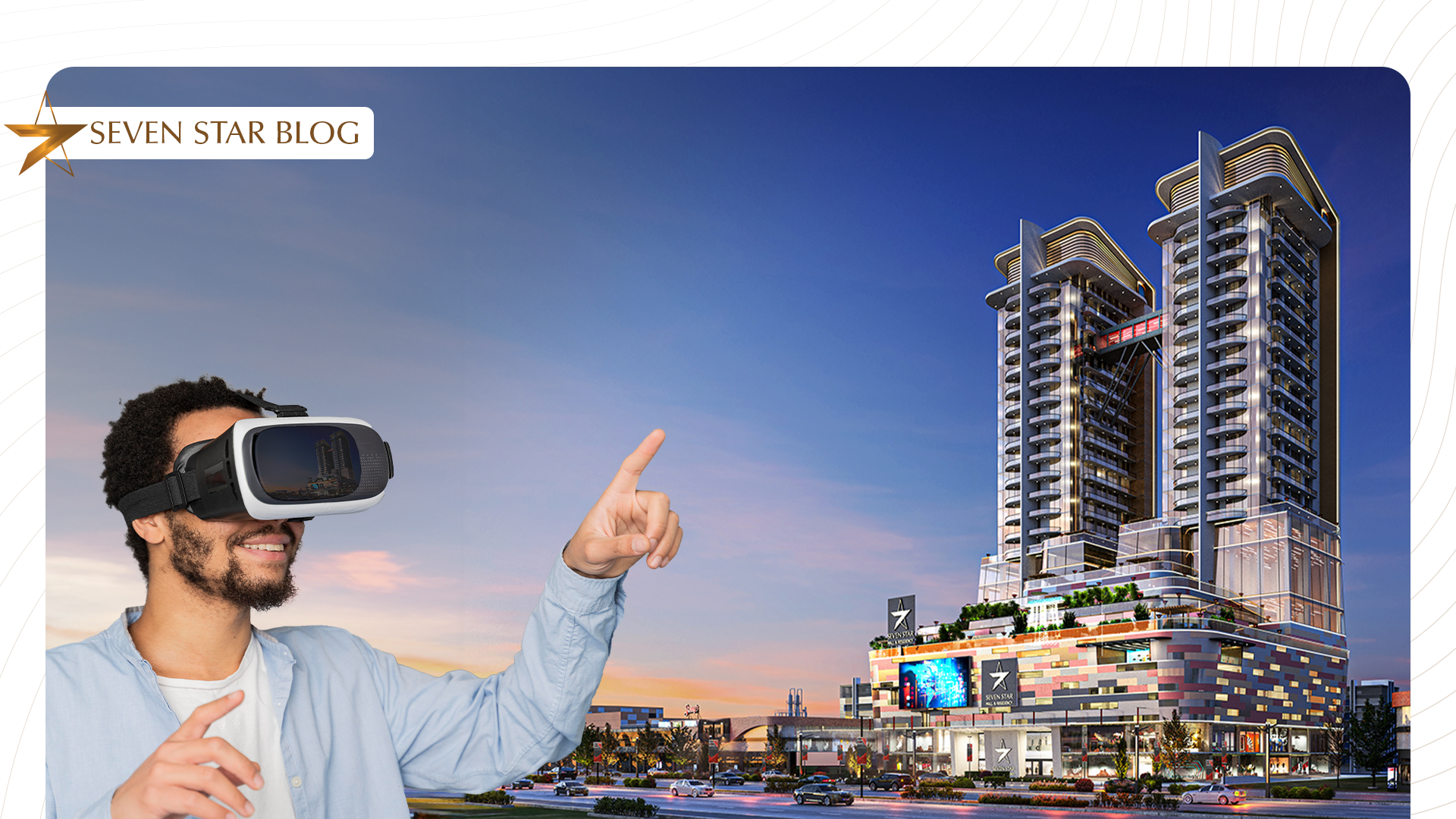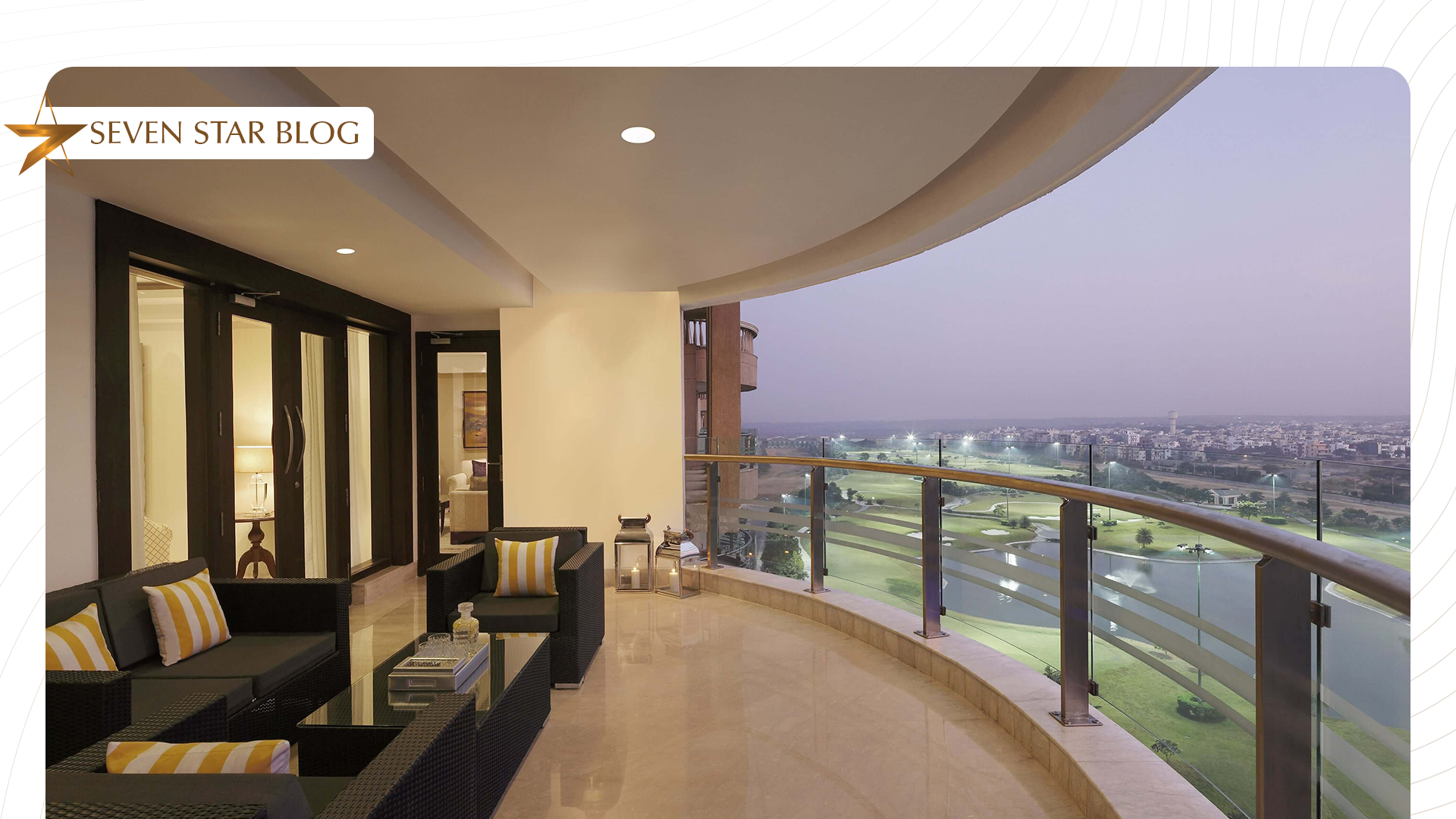VR Revolution in Real Estate Experiences

Virtual Reality (VR) technology has brought forth a novel approach for prospective buyers to explore homes in the real estate market. Buyers may virtually walk around rooms, interact with things, and receive a full 360-degree perspective of the area with the use of virtual reality (VR). The way homes are marketed and experienced is changing as a result of the digital revolution.
Virtual Reality’s (VR Revolution) Power For Viewing Properties
Virtual Reality (VR) technology has brought forth a novel approach for prospective buyers to explore homes in the real estate market. Buyers may virtually walk around rooms, interact with things, and receive a full 360-degree perspective of the area with the use of virtual reality (VR). The way homes are marketed and experienced is changing as a result of the digital revolution.

Extraordinary Experience of the Properties
Virtual reality (VR) opens up every aspect of a home, including the living room arrangement and balcony views. Virtual reality tours offer an active and immersive experience, in contrast to conventional photographs and movies, which give a passive and constrained viewpoint.

Benefits Compared to Traditional Media
Realistic Feel: Virtual reality provides depth and a sense of scale, which facilitates understanding of the environment.
Interactive Experience: Buyers have the option to tour rooms at their leisure and engage with interactive features such as light switches and door openers.
Emotional Bond: Buyers form a stronger emotional bond when they can see themselves living in the environment thanks to immersive tours.

Personalization and Customization
Additionally, VR offers opportunities for personalization. In a virtual environment, prospective purchasers may play around with various furniture arrangements, wall colours, and décor. This feature is priceless since it allows customers to see themselves in the room and may have an impact on their choice to buy.

The Effect on Sellers and Real Estate Agents
For sellers and real estate brokers, virtual reality technology provides an effective marketing tool. Regardless of the furniture or décor in place at the time, it enables them to present homes in the best possible light. Virtual reality tours may also be accessed around the clock, which increases the property’s exposure to and usability by prospective purchasers.
Obstacles and Things to Think About
Virtual reality integration in real estate is difficult, despite its numerous advantages. There is a learning curve involved with utilizing the technology and producing high-quality VR material may be expensive. Furthermore, although virtual reality offers an immersive experience, it is unable to perfectly capture the tangible experiences of being in a place, such as textures or background noise.
FAQs
- How does virtual reality work in real estate?
Answer: Virtual Reality is referred to as VR. It lets customers virtually “step inside” a property by submerging them in a computer-generated atmosphere. Imagine it as an interactive, highly realistic 3D tour.
- How does virtual reality help prospective homeowners?
Answer: Convenience: View homes at any time or place without having to plan in-person visits.
Immersion: See beyond images and movies to get a genuine feel of the room, arrangement, and mood.
Efficiency: Before arranging for in-person trips, make a swift and assured decision.
Emotion: See yourself residing there and base your decisions on your feelings rather than just the information.
- What advantages can virtual reality provide agents and sellers?
Answer: Worldwide reach draws in customers from all around the world, no matter where they are located.
Defy the competition by providing a distinctive and captivating method of showcasing properties.
Minimize in-person appearances: Maintain interest while saving time and effort.
Emphasize potential: Utilize virtual staging and customization tools to present possible future developments.
- Will virtual reality supplant conventional real estate methods?
Answer: No, virtual reality is an adjunct rather than a replacement tool. Although it expedites the first steps and improves decision-making, in-person viewings are still necessary for final evaluations.
- What are the limitations of VR in real estate?
Answer: Cost: High-quality VR equipment can be expensive, though accessibility is improving.
Technology adoption: Not everyone has access to or is comfortable using VR technology.
Sensory limitations: VR cannot fully replicate the physical feeling of a space or its surrounding environment.
Conclusion
VR has limitless possibilities in the real estate industry going forward. Indeed, we should anticipate increasingly lifelike and engaging simulations as technology develops. Personalized property suggestions based on user preferences might be provided by merging Artificial Intelligence (AI) with Virtual Reality (VR), an attractive idea. Virtual reality (VR) technology in real estate is a game-changer, not just a new tool. It is revolutionizing the way we see and buy houses with its unmatched efficiency, convenience, and personalization options. We are entering a new and exciting age in the real estate sector as we embrace this virtual transformation.
